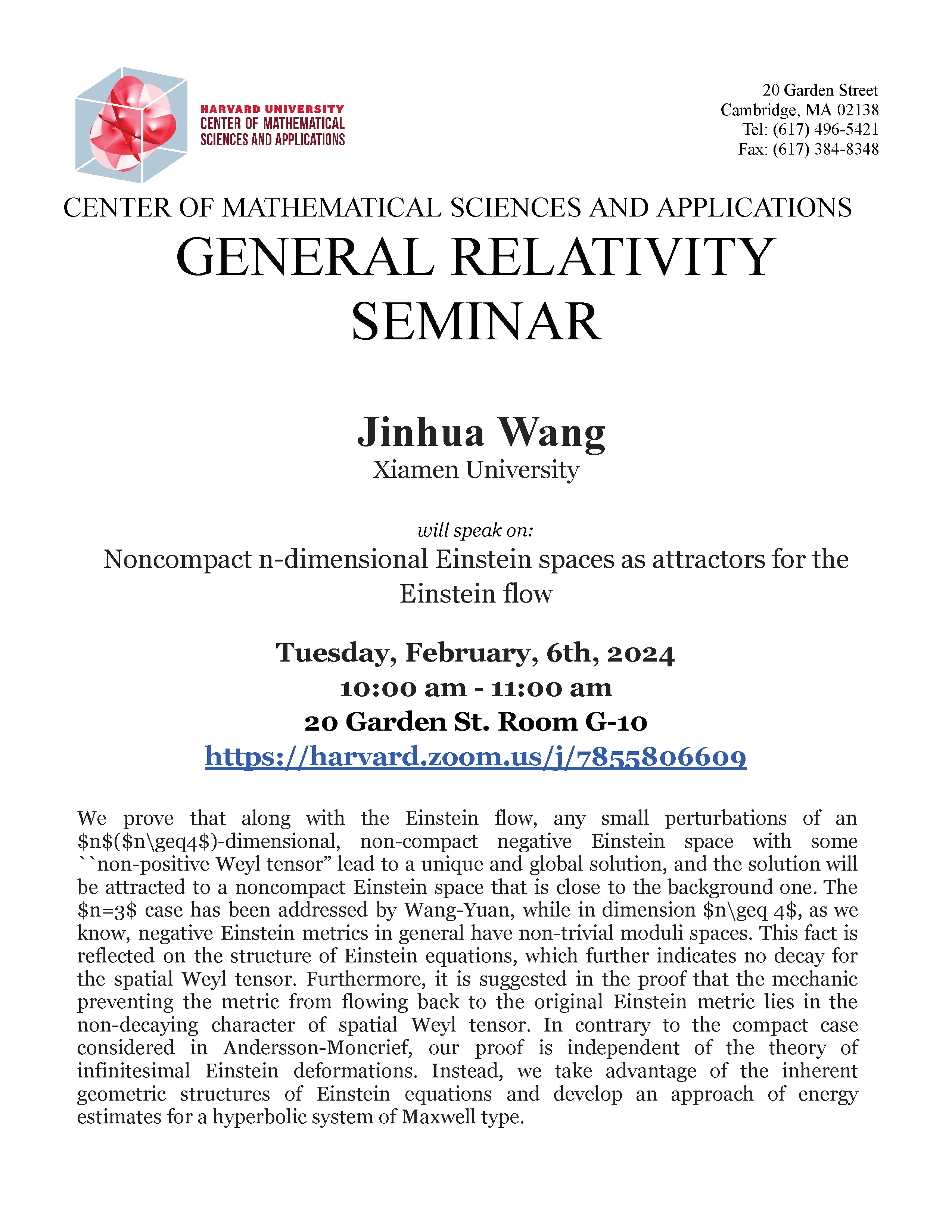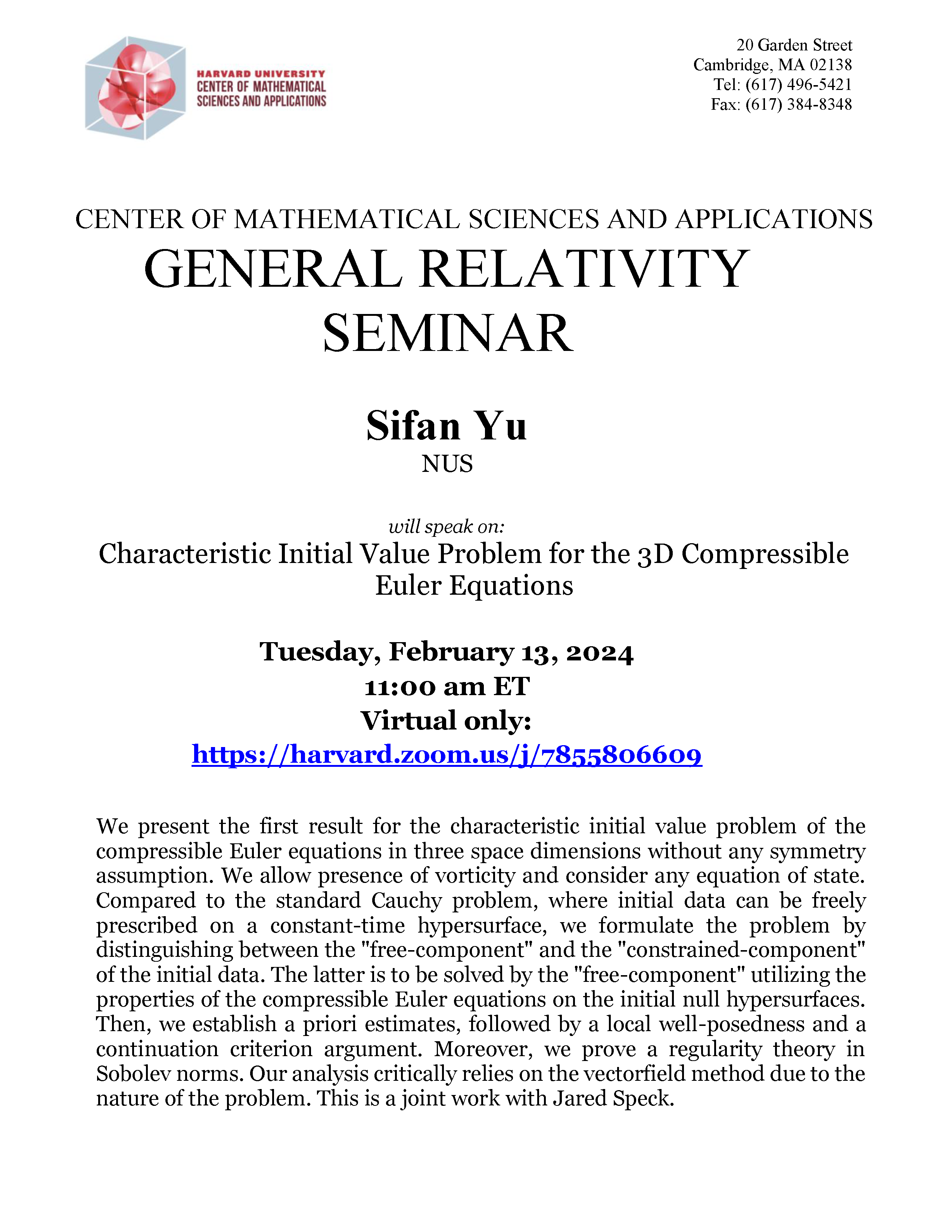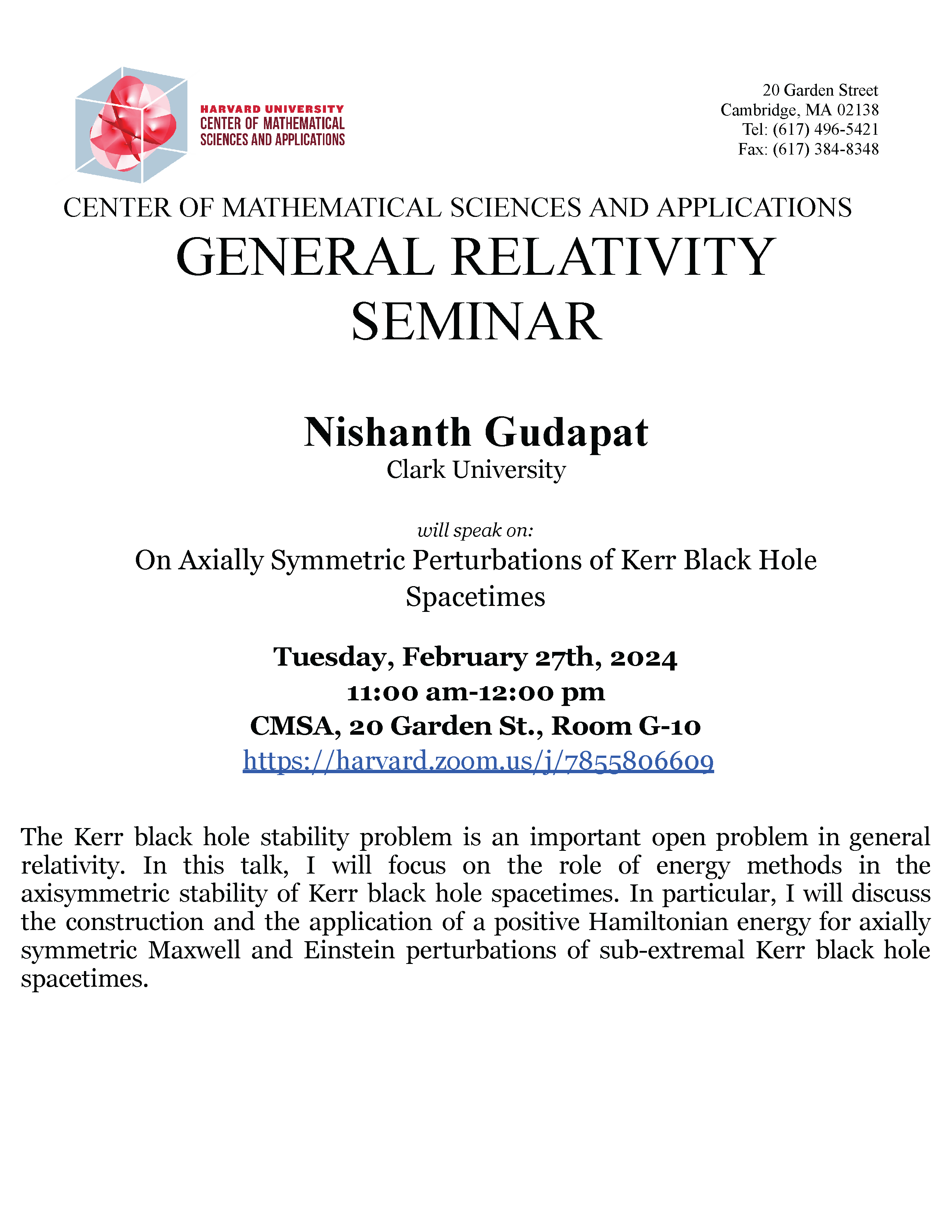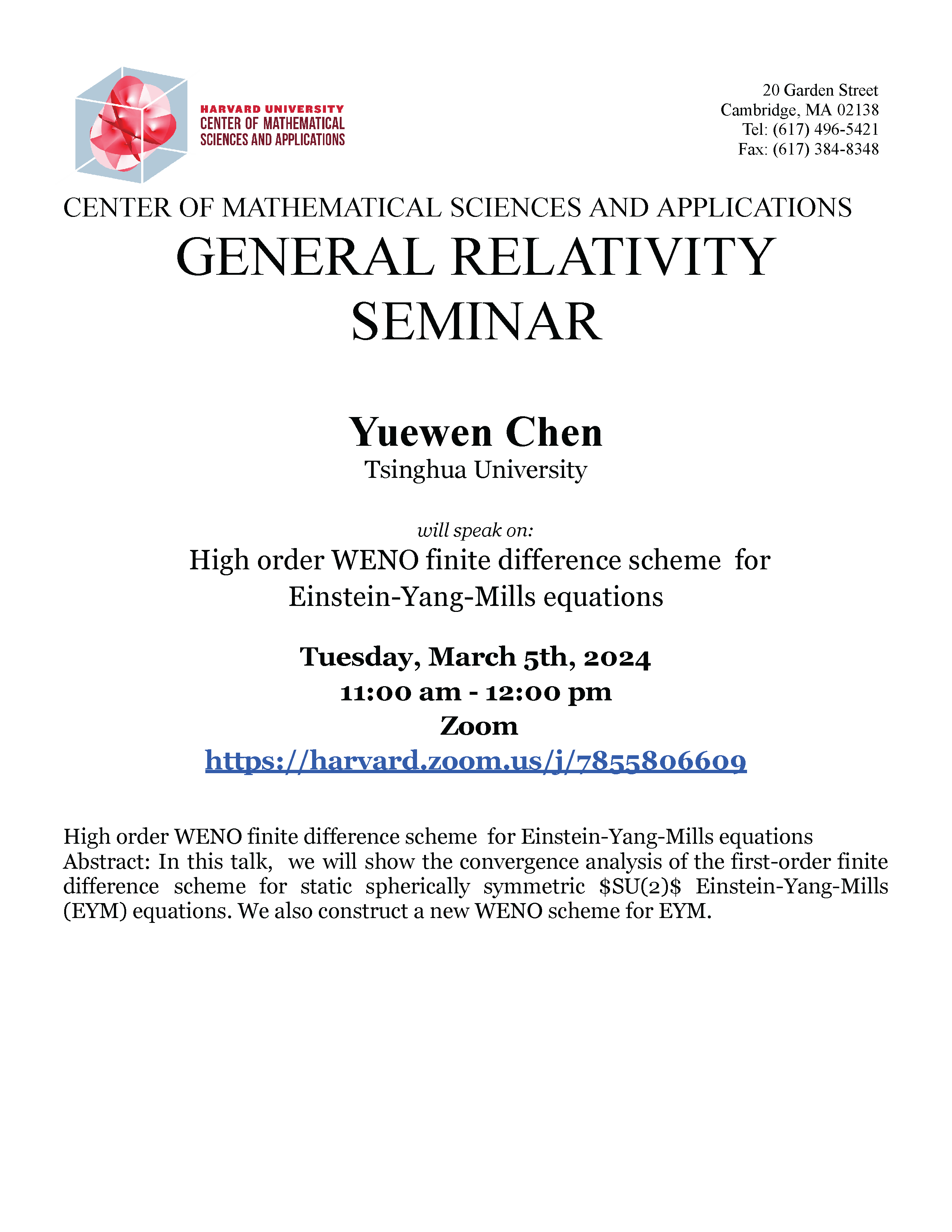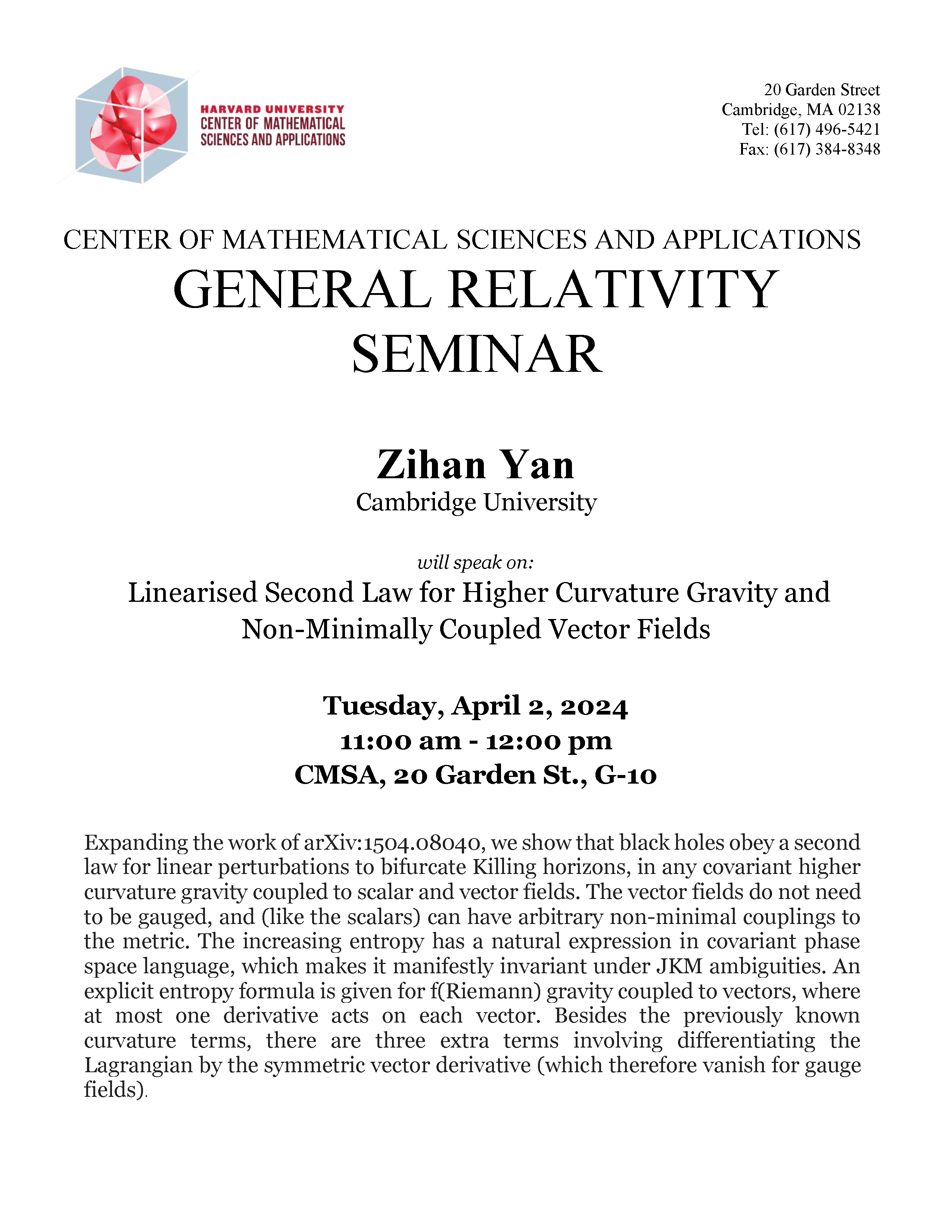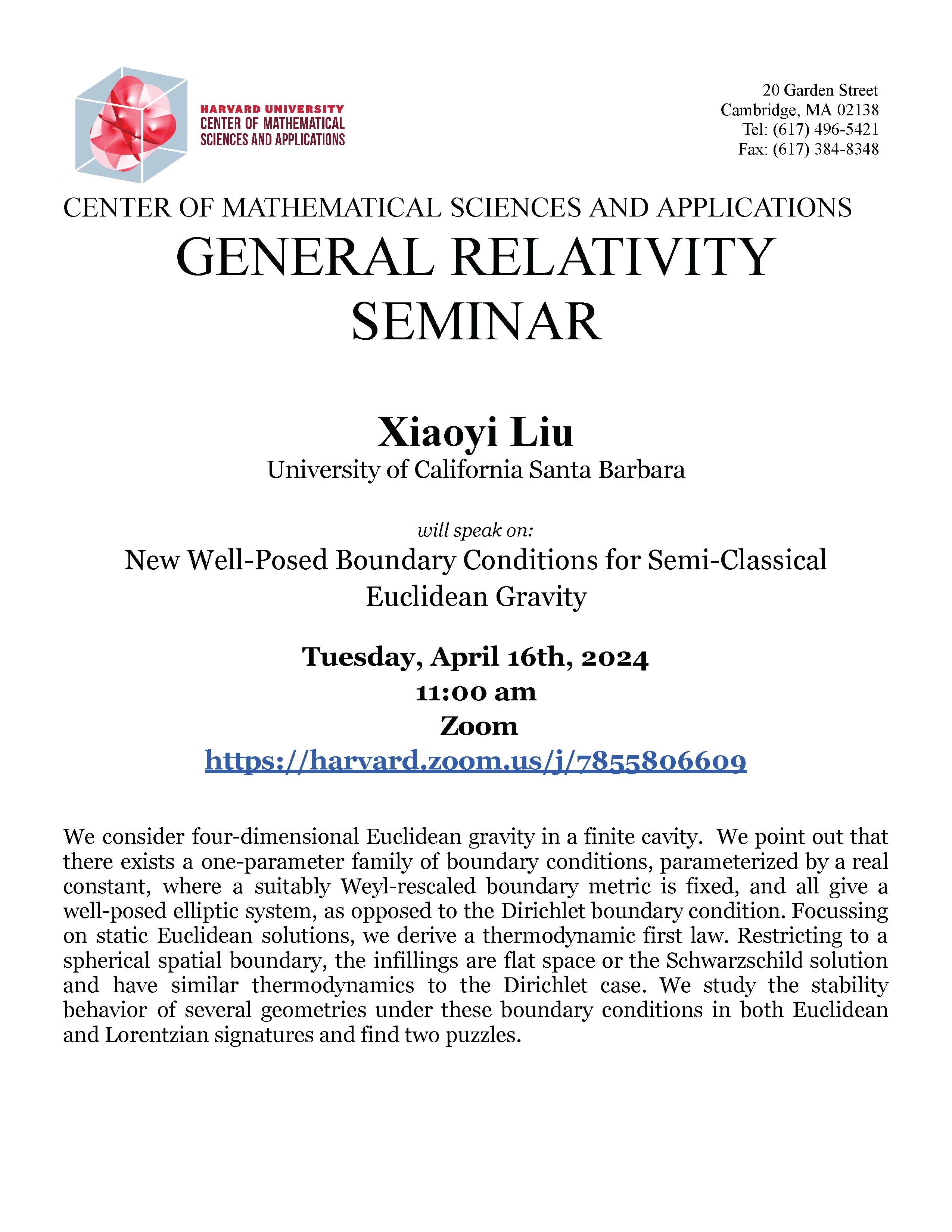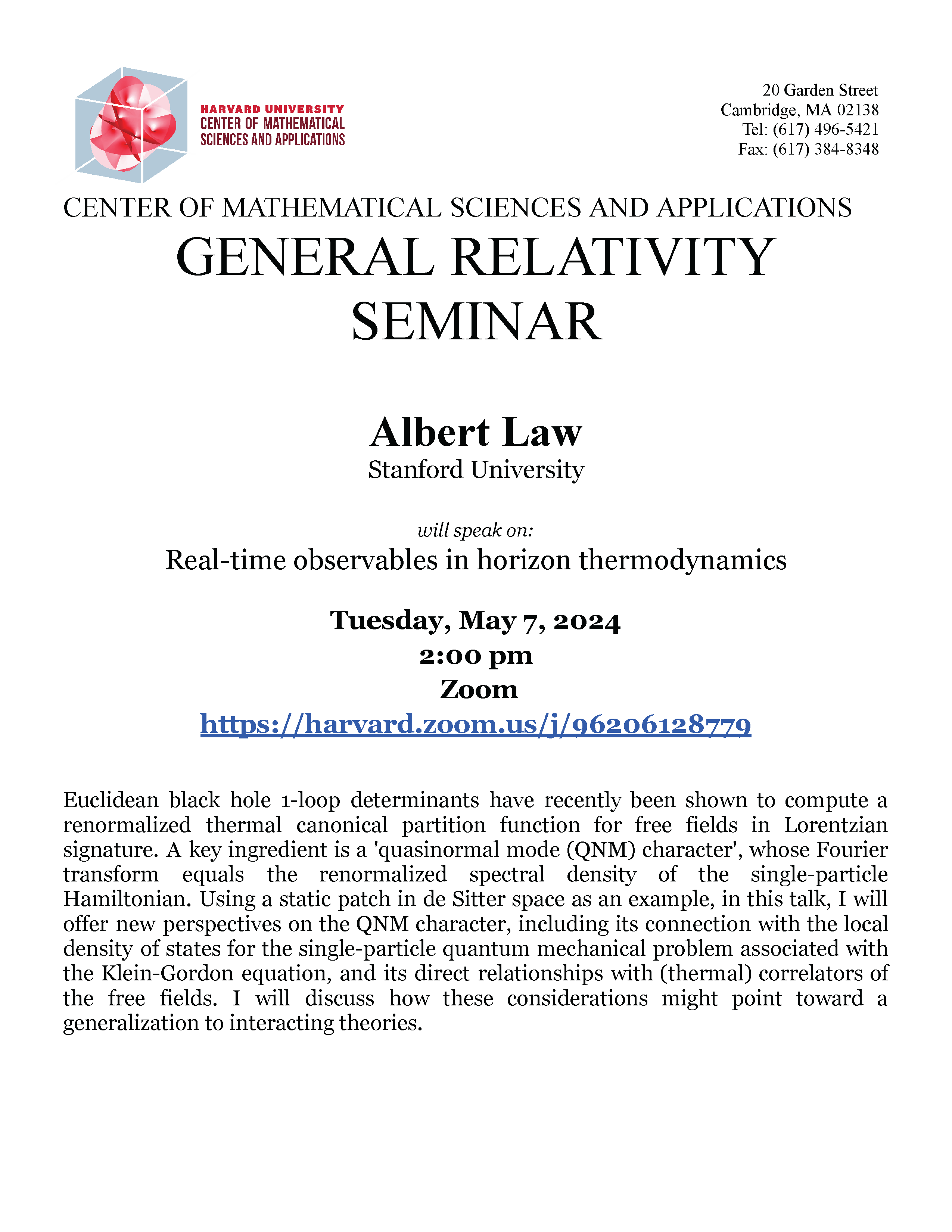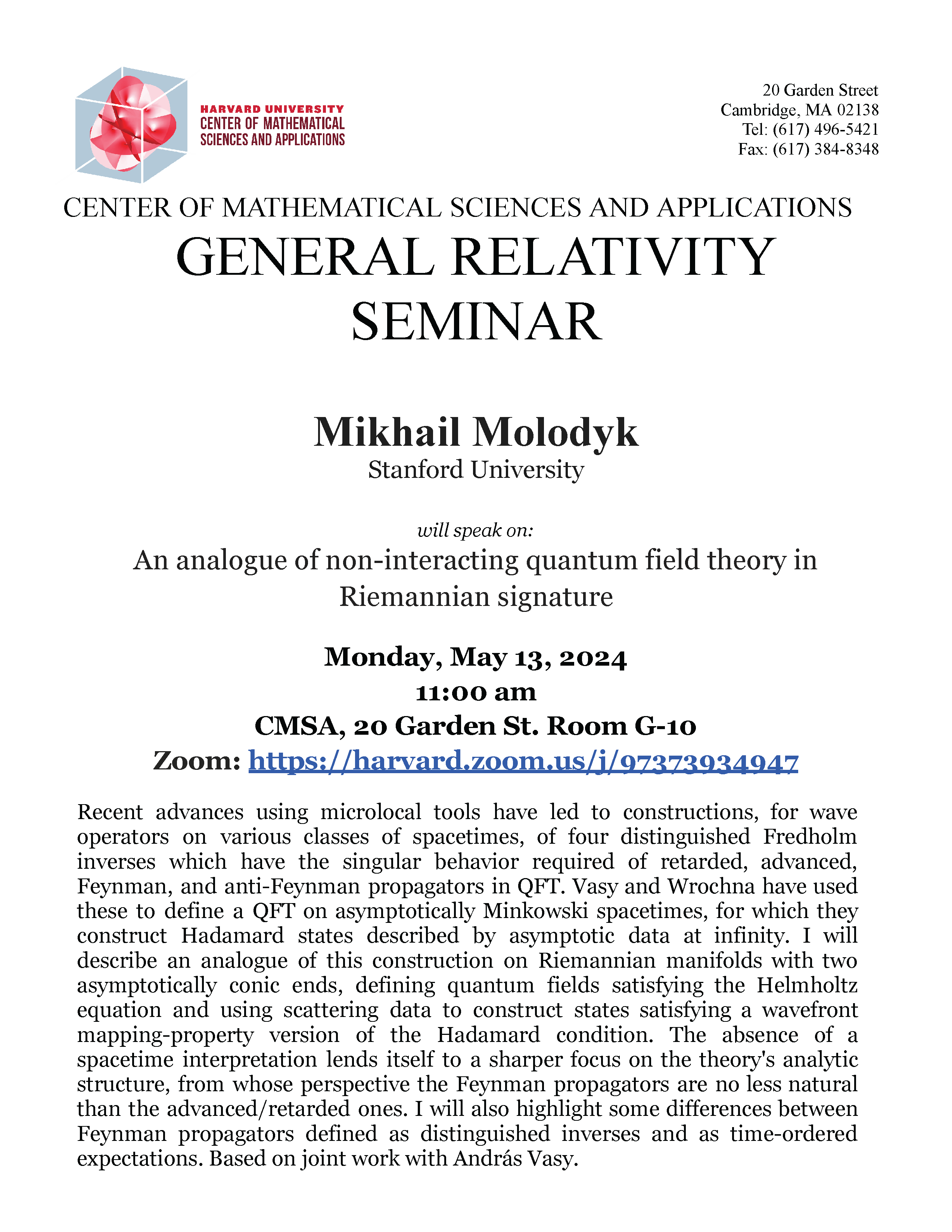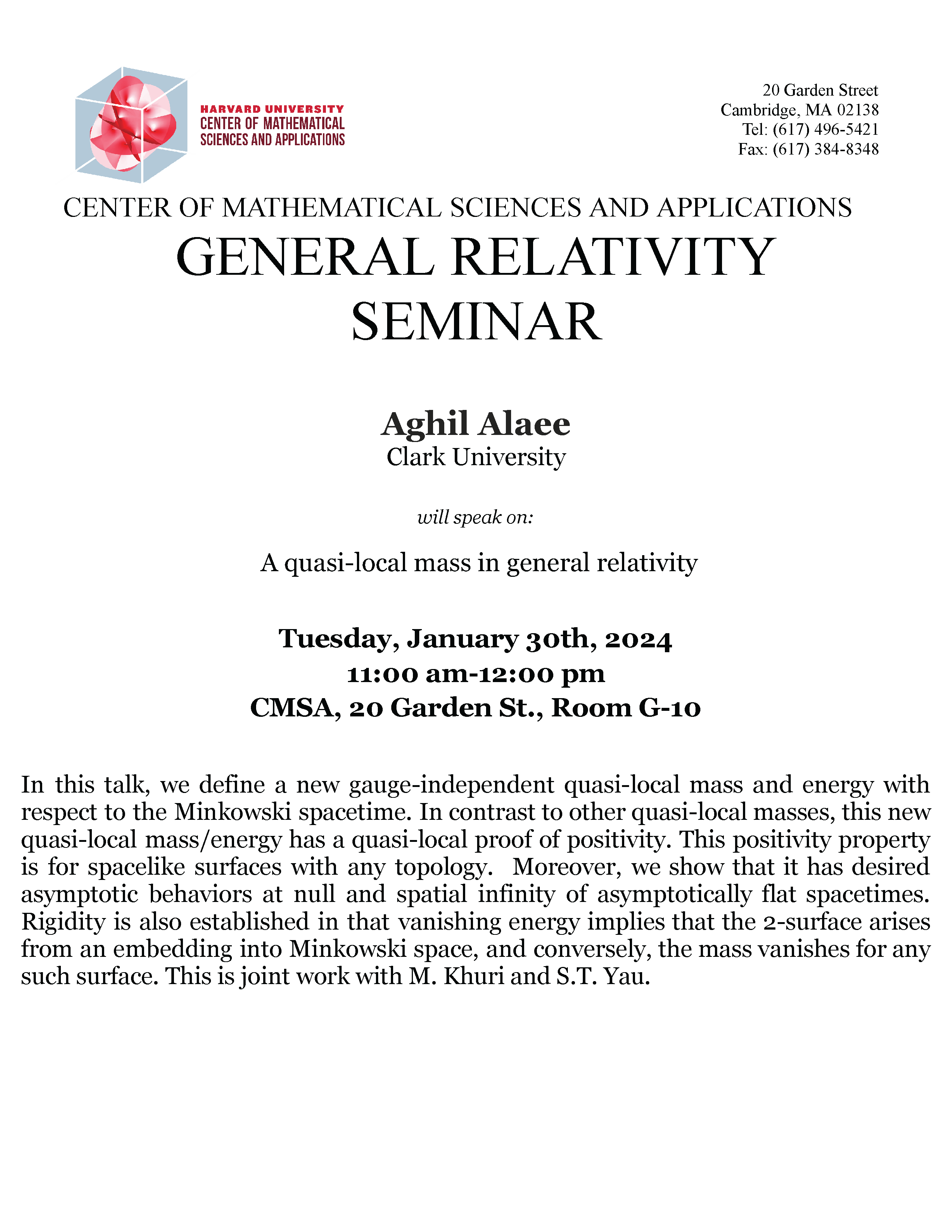
A quasi-local mass in general relativity
CMSA Room G10 CMSA, 20 Garden Street, Cambridge, MA, United Stateshttps://youtu.be/hmRFX1Js6IA General Relativity Seminar Speaker: Aghil Alaee, Clark University Title: A quasi-local mass in general relativity Abstract: In this talk, we define a new gauge-independent quasi-local mass and energy with respect to the Minkowski spacetime. In contrast to other quasi-local masses, this new quasi-local mass/energy has a quasi-local proof of positivity. This positivity property is for spacelike surfaces with any topology. Moreover, we show […]

